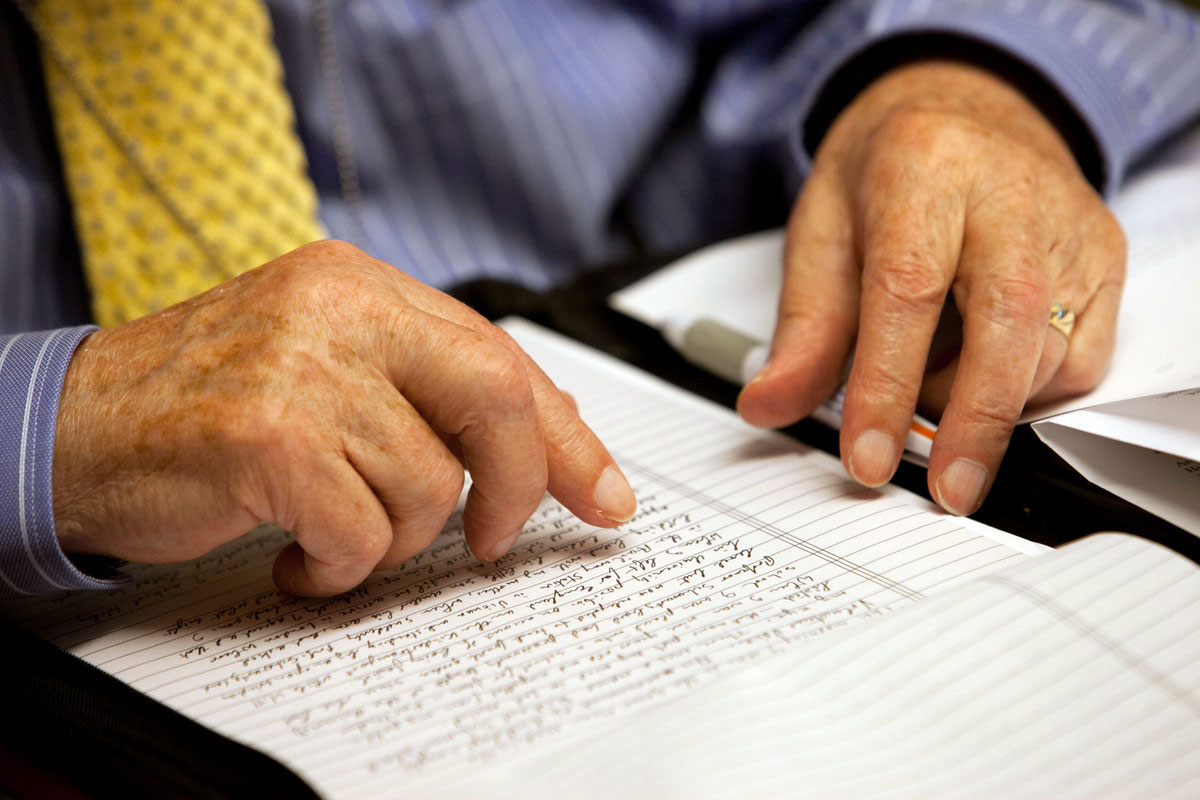Read reflections and testimonies written by Holocaust survivors in their own words.
Blog Home > escape
-
Letter to Tansi
October 22, 2020
We, the survivors who volunteer at the United States Holocaust Museum, often receive letters from students who wish to engage with a Holocaust survivor as part of a school project. Tansi is a 15-year-old sophomore in high school in California. She must have researched our survivor biographies and been moved by my experience and wanted to learn more. Her sensitive letter prompted me to reply to her and praise her for her perceptive questions.
-
The Bridge
October 22, 2020
The prettiest bridge I have ever seen is the Golden Gate Bridge in San Francisco.
-
Leaving Nazi Germany
October 23, 2019
In 1938, my family was living in Berlin while the Nazis were intensifying the repression and violence against Jews. Late that summer, my father took my two siblings on a train to Aachen, a spa city near the borders of Belgium and the Netherlands. My sister, Rosi, was ten years old and my brother, Mani, was a year younger. I was just one year old, so my mother and I stayed home. During the train ride, Rosi shared with Mani what she had overheard at home: this was not a vacation as they had been told. As a matter of fact, they were going to Aachen to cross the border into Belgium.
-
Decamping France
November 1, 2017
During the invasion of Morocco and Algeria in Operation Torch, undertaken by the Allied Forces on the eighth of November 1942, German troops overran the unoccupied zone of France directly. The Nazi military finally and openly occupied the whole of metropolitan France in 1942 because of this new threat from the Allied invasion of North Africa. I found the sound of the Nazi boots marching on the Canebière terrifying, perhaps because the footwear worn by the German infantry were probably Knobelbecher, what are sometimes called jackboots. The standard version of the Knobelbecher in World War II had a leather sole with hobnails and a horseshoe heel.
-
Winter Coats
November 1, 2013
Winter of 1942 was severe. In the Drohobycz ghetto the Germans had decided to exterminate the Jews. The ways to achieve this were by starving or freezing them to death. The food rations were extremely small and there was no coal to heat the homes. People tried to avoid starvation in any way they could. Many of those who before the war worked in professions or trades had to resort to begging—after selling or bartering all their possessions for food, they had no other choice. Cold and hunger combined made people’s lives miserable. As a result, many starved to death. In the spring and summer the misery was intensified by an outbreak of typhus caused by outrageously unsanitary conditions. There were frequent Aktions during which we hid in a hole dug under the floor of our apartment, or in the lumber factory where my father worked. There were often rumors about forthcoming Aktions, which made life so very tense.
-
Escape from the Ghetto
November 1, 2013
Conditions in the Drohobycz ghetto in the summer of 1943 were unbearable. They included hunger, frequent Aktions*, and indiscriminate beatings and killings. The Germans were forcing the Judenrat (Jewish Council) to deliver 100 women and old people every week for executions or deportation to Belzec. Constant fear was the order of the day. There were other signs that the ghetto would be liquidated soon, so my father decided to smuggle out my mother, my sister, Irena, and me by bribing the guard who was taking the workers to and from the ghetto. It was still dark when my mother, dressed in men’s clothing, hid my sister under her coat; my father took me the same way and we marched out of the ghetto.
-
January, 1945
September 17, 2006
In January of 1945, we came to Snina. We came from Kiev. The reason we came was because my friend Monica told me on the night of December 24 that the NKVD [Soviet secret police] would come and pick up my sister and the old lady, Ms. Diernfeld, whom we had met during our travels in Russia. She referred to my sister as a German spy because she had very blonde hair and I never referred to her as my sister. I never talked about my family or anything personal.
-
My Life in Stanestie
September 18, 2005
How do you describe a little town you loved when you were young? I never thought of it as a little town. It had everything. I lived with my father, mother, and sister. I went to school, played there, and had lots of friends. I also had my grandparents, uncles, aunts, and cousins nearby.
-
The Haystack—1942
September 21, 2003
It was an early autumn day—the forest was dark and I could hardly see the sun. I felt dampness all around me and I was tired, but there was nowhere to rest as this forest had sparse underbrush and it was difficult to find a hiding place.


